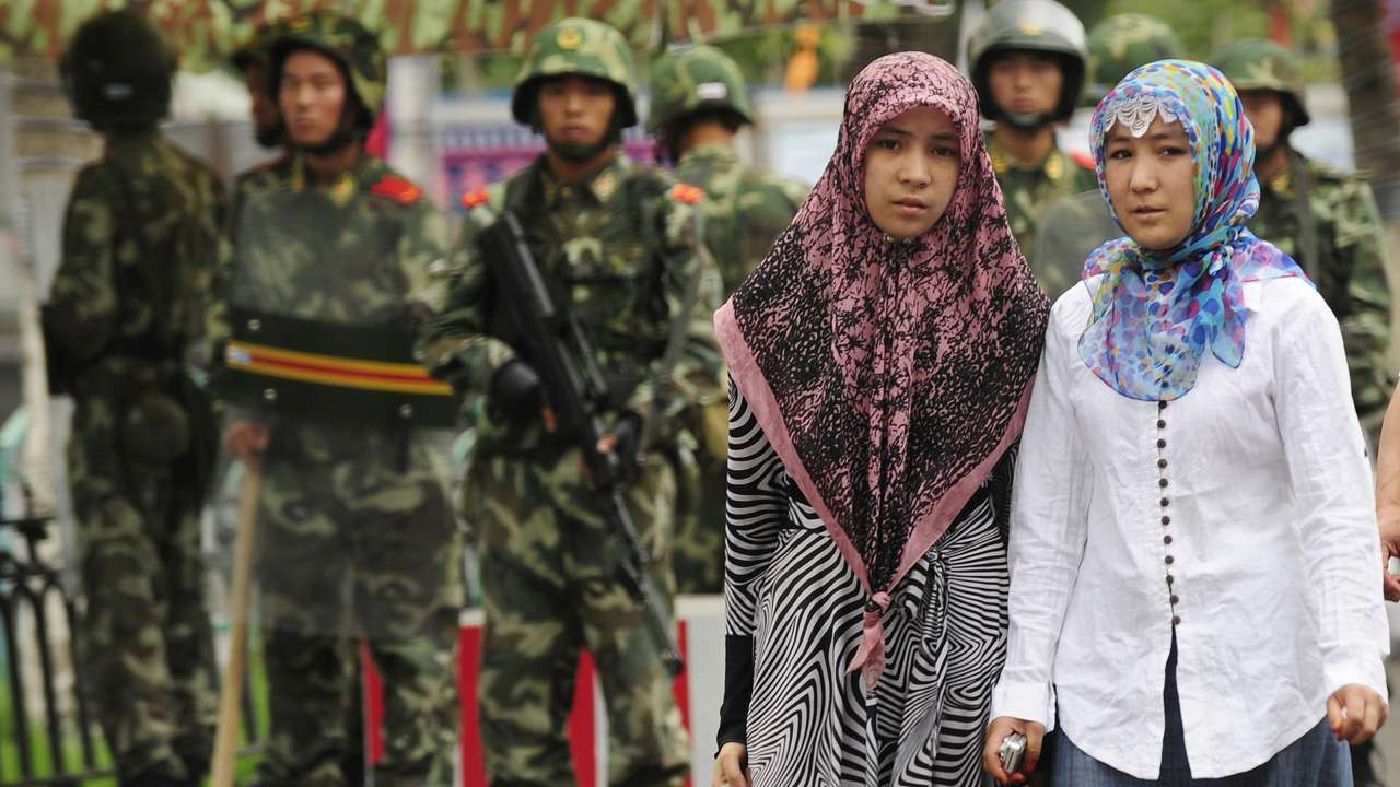The Uyghur minority in China was previously targeted by the Chinese government, but the situation worsened under the government’s new campaign to “crack down on terror.” Increased controls on religious and cultural activity, large-scale Han Chinese migration, and economic marginalization of the Uyghurs have heightened tensions.
Uyghurs are presently unable to travel outside their place of residence without getting papers checked and are frequently barred from working any government jobs. The technological component of Beijing's anti-Uyghur regime has allowed for high-tech facial recognition programs, biometric databases, and social rating software to classify citizens as “safe” or “not safe” based on subjective criteria. Some Uyghur families are forced to house Chinese government officials within their own homes to monitor unwanted activities such as prayer. Authorities have even banned long beards, veils, and Islamic robes.
MPAC says that “Violators” are sent to re-education camps across the Xinjiang province and new evidence shows prisoners in the camps are locked in their rooms, forced to study communist propaganda, and sing Communist Party songs. Detainees held in the camps are almost always detained without receiving any formal charges or sentencing with a majority of violators never being released. Though an estimated 40 percent of the population have disappeared, the Chinese government defends the camps.
China maintains the number of detainees has been vastly overestimated; “There is no arbitrary detention [or] such things as re-education centers. [There is] no suppression of ethnic minorities or violations of their freedom of religious belief in the name of counter-terrorism.” The UN Committee on the Elimination of Racial Discrimination disagrees, finding reports of Chinese mass detention and re-education to resemble “something [similar to] massive internment camps.” Despite leaked evidence and first-hand accounts from within the re-education camps, China responded to the UN panel by denying claims that one million Muslims are being held by the Chinese government.
In Weizhou, China, the Hui Muslim community has faced similar affronts to their religious liberty. Though the Hui have historically been viewed as a model minority, recent Chinese actions against the practice of Islam have come at the cost of the newly constructed Weizhou mosque. This instructive stems from President Xi Jinping’s 2017 address to the 19th Party Congress of the Chinese Communist Party (CCP) which states, the party must "uphold the principle that religions in China must be Chinese in orientation and provide active guidance to religions so that they can adapt themselves to socialist society."
The over 90% ethnically Hui Muslim population in Weizhou has responded by pushing back against the proposed demolition of their place of worship. Though recent demonstrations and protests led to a partial success, causing local Chinese authorities to halt demolition, the government has instead called for a modification of the traditional Arabic architecture of the mosque.
Maya Wang of Human Rights Watch in China told the Los Angeles Times, “the demolition of the mosque as well as the crackdown in Xinjiang that is taking place right this moment shows China’s utter disregard for its human rights obligations. Keep in mind that the Hui tended to be the more tolerated group of Muslims. The fact that even their mosques face demolition shows the increased restrictions on religion are broadening.”
In May, MPAC brought a Uyghur community leader to speak before Sam Brownback, U.S. ambassador for religious freedom, to describe the plight of the Uyghur community and urge the U.S. to enact sanctions against China. Most recently, the U.S. State Department has condemned China's restrictions on religious freedom, calling on the government to respect the human rights of all its citizens. Without widespread denouncement and action from world leaders, minority communities in China will continue to suffer. MPAC says it will continue to work on improving religious freedom for all to ensure no individuals are denied basic human rights for their faith.

